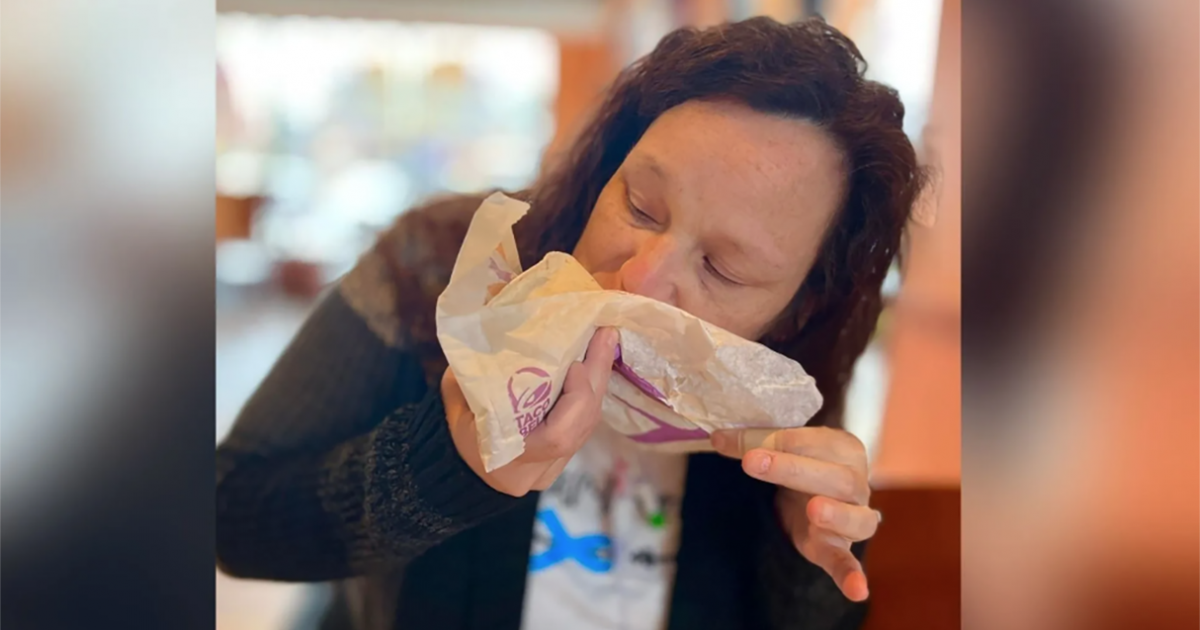Understanding Colon Cancer
- Sheila Davis was looking forward to ringing the bell after finishing treatment for colon cancer. Instead, she went to Taco Bell to celebrate!
- Colon cancer is a type of cancer that affects the large intestine (colon) or the end of the intestine (rectum). This cancer is also called colorectal cancer.
- This cancer starts when abnormal lumps called polyps grow in the colon or rectum. If you don't have these polyps removed, they can sometimes change into cancer.
Sheila, who's from McMechen, W.Va., has had a long year. She's been commuting back and forth from her home in West Virginia to the Cleveland Clinic for treatment, which she began exactly one year ago as of Tuesday (March 22).
Read MoreTo donate to Shelia's cancer fund, click here to visit her GoFundMe page.
Understanding Colon Cancer
Colon cancer is a type of cancer that affects the large intestine (colon) or the end of the intestine (rectum). This cancer is also called colorectal cancer.
Common Misconceptions About Colon Cancer
This cancer starts when abnormal lumps called polyps grow in the colon or rectum. If you don't have these polyps removed, they can sometimes change into cancer. It takes up to 10 years for a colon polyp to become a full-blown cancer, according to SurvivorNet experts, but when colon cancer is found early, it can often be managed.
The treatment of stage 1 colon cancer is surgery, in which a piece of the colon is removed and the colon is put back together, Dr. Heather Yeo, a colorectal surgeon and surgical oncologist at Weill Cornell Medicine and NewYork-Presbyterian, previously told SurvivorNet.
Surgery alone can be curative for these patients; chemotherapy isn't usually recommended for patients with localized disease. Patients with stage 1 colon cancer have a very good prognosis, with a five-year survival rate of about 90%. (It should be noted that it isn't clear what stage Sheila's cancer was at the time of diagnosis.)
However, advanced stages of colorectal cancer are not always curable. But because there are so many treatment options available, they can often be managed.
In the last few years, new treatments have emerged that offer some hope. One treatment, called checkpoint inhibitors, is for people with a certain genetic profile, such as Lynch Syndrome.
Inherited Genetic Disorders in Colon Cancer: Lynch Syndrome
Lynch Syndrome can be passed down from either parent, and if you have it, you have an 80% chance of developing colon cancer in your lifetime.
These people may indeed be able to benefit from something called a checkpoint inhibitor, which are man-made antibodies that shut down key proteins on immune cells like PD-L1 essentially halting a cancer's ability to spread.
What Do Checkpoint Inhibitors Do for Cancer?
Checkpoint inhibitors have been proven effective for certain later-stage cancers, Dr. Scott Strome, now the executive dean of the College of Medicine at University of Tennessee Health Science Center, previously told SurvivorNet. But the genetic codes in certain people may inhibit their positive effects.
In order to know if you're a viable candidate for checkpoint inhibitors as a treatment for your later-stage cancer, check with your doctor. They'll go over your hereditary information to determine if it is one of your best options.
Contributing: SurvivorNet staff reports
Learn more about SurvivorNet's rigorous medical review process.


